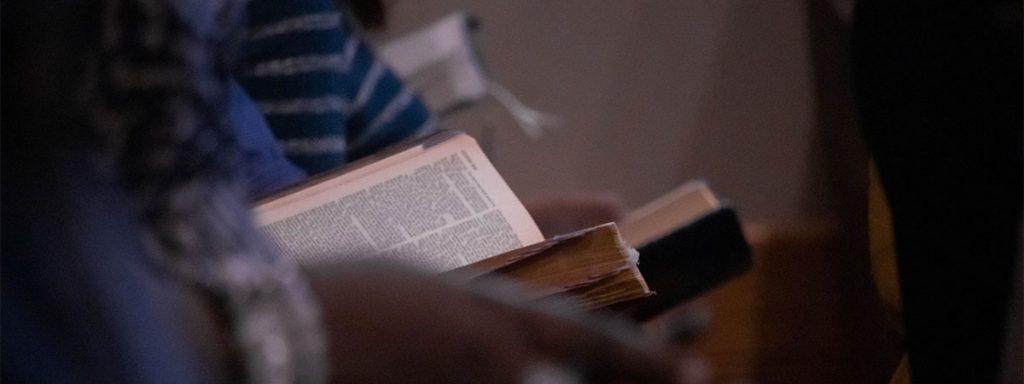
Now it had a face
Brian’s story of sharing life and faith with Muslim students in France
Sandbags. It was an unusual picture. Brian* had been a student at the time. Just one among the vast crowds of young people at Urbana, the InterVarsity/USA missions conference. And there God spoke to him. He gave Brian a vision for using his life to share his faith. The picture he had was of people piling up sandbags to deal with a flood, but there was one area where no one was working. If I can go anywhere to share my faith, why not go where no one else is going? he thought. And so the idea of serving among Muslim people was planted in Brian’s mind.
A short-term mission trip to Bosnia, a Muslim-majority country, confirmed it. Brian found he could relate to Muslim people well, and he enjoyed their company. Living among them and sharing his faith seemed more doable. Before, the concept of Islam had been an empty void to him. Now it had a face.
Surprises in store
Brian ended up settling in France with his young family, to serve with GBU, the IFES movement there. A large part of his time was spent reaching out to Muslim students and helping GBU students to do the same. It wasn’t easy. Being on staff didn’t make him immune from the usual fears of evangelism. Over the years that followed, Brian discovered a lot about sharing the gospel with Muslim students. And he was often surprised.
Coffee and questions
Brian and his wife set out for the campus one cold morning, armed with flasks of coffee to hand out, and a question: would you be interested in joining our Bible/Quran discussion group? One of the Muslim students they met that day was particularly keen to come along. Why? That very morning he’d been wondering what the differences were between the Bible and the Quran. He was delighted to meet someone offering him the opportunity to find out – along with a free coffee!
Time and again, Brian found that Muslim students were often happy to talk about faith matters, and to receive prayer. In fact, they were often disappointed to find that westerners – including Christians – were usually reluctant to talk about those kinds of things.
Rethinking worldviews
While it was easy enough to get into a conversation with a Muslim student, their different worldview meant that Brian needed to learn a different approach in apologetics.
Take, for example, the commonly held Muslim belief that the Bible has been changed and corrupted. In a Western context, Brian would start by inviting the student to look at the evidence, say by studying the manuscripts, to prove that the Bible hasn’t been changed. But that approach, Brian found, fell flat on a listener with a Muslim worldview. One day he tried something else:
On hearing ‘the Bible has been changed’, Brian suddenly took a step away from the student. What are you doing? they asked. “I don’t want to be standing here if you get hit by lightning”, Brian replied. “What you’re saying is really serious. This is God’s Word. Are you saying God has allowed His Word to be changed?! May God protect you from what you’re saying right now.”
Brian’s dramatic approach worked. The student quickly changed his mind. Because as a Muslim he already understood that God is sovereign and unthwartable; there was no way He’d let His Word be changed.

Believing forward
Of course, helping a Muslim see that the Bible hasn’t been changed was not the end goal; it was just a helpful step along the way. Brian knew that the power to transform hearts is found in the Bible. That’s why he helped start up student-led Bible/Quran discussion groups, and loved to open the Bible with his Muslim friends. Sharing his faith and his life was not quick, easy, or obviously fruitful work. But it was obedient. And that’s all that mattered.
So what about us? Why should we bother to share the gospel with our Muslim classmates on campus? Brian reflected:
We don’t have a choice but to get on board with it. If we’re really committed to reaching every corner of campus, we have to be willing to engage all people. There are staff in IFES movements today who are former Muslims. We have to ‘believe forward’, trusting that these Muslim students might one day be faithfully serving God as well.
There are Christians today living in Iran, Tunisia, Kyrgyzstan and similar places. If they could, they would beg us to reach out to their fellow compatriots while we can. Immigrants and international students, visiting scholars. It’s probably their best chance to hear the gospel, and it’s an amazing way that we can partner with our persecuted brothers and sisters around the world.
*name changed



